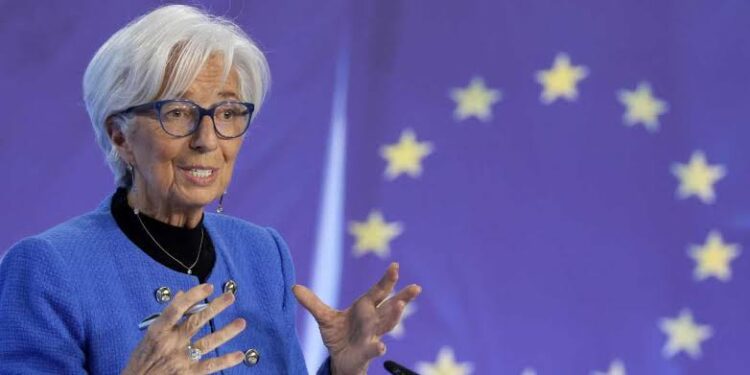The European Central Bank (ECB) has space to reduce interest rates as inflation eases. ECB board member Piero Cipollone emphasized this in a recent interview. The ECB has already cut borrowing costs five times since June. Investors expect at least three more rate cuts this year. These cuts aim to revive an economy that has struggled to grow after two years of stagnation.
“We all agree there is still room for adjusting rates downwards,” Cipollone said. He noted that inflation is nearing the ECB’s 2% target. However, he warned against committing to specific rate cut timelines. Energy prices and global trade tensions create uncertainty for future decisions.
No Recession Expected Despite Economic Concerns
The eurozone economy remains on a slow path to recovery. The ECB’s December projections assumed four rate cuts in 2025. Cipollone confirmed that the economic fundamentals have not changed. He expects the bank to continue reducing rates at a steady pace.
Although inflation increased slightly to 2.5% last month, the ECB predicts it will return to 2% by summer. Other economic indicators also provide a positive outlook. The labor market remains strong, and consumer spending is recovering. The construction sector is performing well, and manufacturing is stabilizing after a prolonged slump.
“We might not be booming, but I am not expecting a recession at all,” Cipollone stated.
US Tariffs on China Could Hurt Europe
Cipollone raised concerns about US trade policy and its impact on Europe. The US recently imposed a 10% tariff on all Chinese imports. China responded with retaliatory measures. If trade tensions escalate, Europe could suffer significant consequences.
“What concerns me more is if President Trump engages in a full trade war with China,” Cipollone said. He highlighted that China controls 35% of the world’s manufacturing capacity. Losing access to the US market could push China to flood Europe with cheap goods. This would lower prices and hurt European manufacturers.
A study by the Peterson Institute for International Economics found that US tariffs hurt all parties involved. However, the US economy would suffer less than its trade partners. Europe could be one of the biggest losers in this trade war.
Tariffs May Not Trigger a Crisis
Despite these risks, Cipollone downplayed the impact of direct US tariffs on Europe. He suggested that European companies could absorb higher costs by lowering profit margins. A weakening euro against the US dollar could also provide some relief.
Trade tensions may slow economic growth but are unlikely to cause a recession. Other parts of the economy remain stable, providing a buffer against external shocks. Inflation risks are also balanced. While trade conflicts could push inflation lower, rising energy costs could offset that effect.
The ECB will continue monitoring global trade developments. However, Cipollone remains optimistic that Europe can navigate these challenges without a major crisis.
Related Stories:
Which Two BRICS Nations Officially Agree To Ditch the US Dollar For Trade?
US-China Climate Relations at a Crossroads: Navigating the Transition in Leadership
Pakistan To Face Double Trouble if BRICS Threatened the US Dollar
















